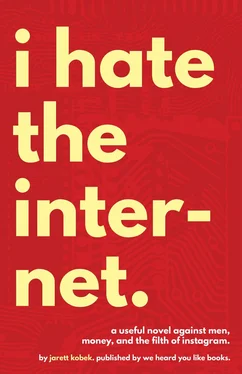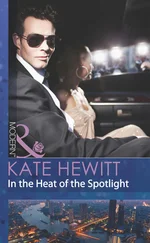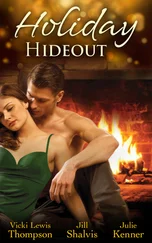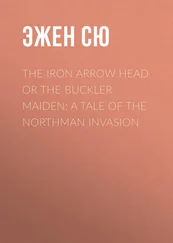A 78 release was a vinyl disc with enough space for one short song on each of its two sides. In the case of “My Black Mama,” the vinyl record contained “My Black Mama, Part I” and “My Black Mama, Part II.”
The album was meant for an African-American audience but it was released at a time of economic catastrophe. Its sales were worse than the sales of Hot Mill Steam.
Decades later, there arose a general belief amongst record collectors without much eumelanin in the basale strata of their epidermises that musicians like Son House offered an authenticity which rebuked the increasing commercialization of American culture.
There was a general belief that Son House was a primitive with a direct line to pickaninny suffering, an ancientness rural goodness that existed beyond the modern world.
This was, of course, intolerable bullshit.
Son House was a modernist master. He was a genius. Both sides of “My Black Mama” were profound works.
Part II of the 78 release of “My Black Mama” was famous. It became Son House’s signature song in later years when White record collectors found him living in Rochester, NY.
Part II is about the singer learning that the girl he loves is dead. He takes off down the road and finds his good ol’ gal in a morgue. She’s laying on a cooling board.
Basically, it’s a reworking of “St. James Infirmary,” which in turn was a reworking of “The Unfortunate Rake.” When Son House performed Part II in later decades, after he was found by White record collectors, he used the title “Death Letter Blues.”
It became a classic. It was covered by hundreds of musicians. By and large, the great percentage of musicians who covered “Death Letter Blues” did not have eumelanin in the basal strata of the epidermises.
No one talked about Part I, which was a song about the singer’s preference for a woman with a heavier distribution of eumelanin in the basale stratum of her epidermis over a woman with less eumelanin in the basale stratum of her epidermis. It expressed an ideology in exact opposition to that of the brown paper bag parties attended by Jeremy’s parents.
The focus on Part II fell into very common receptions of African-Americans and their culture. Everyone wanted to hear about Black people dying and being sad. Everyone wanted a Black woman dead on a cooling board.
Part I was a song about how the singer lusted for his black mama, regardless of the consequences, worldly or spiritual.
Jeremy liked the conjunction of the following verses:
You take a brown-skinned woman
Will make a rabbit move to town
Say but a jet Black woman
Will make a mule kick his stable down
Oh brown skinned woman
Will make a rabbit move to town
Oh but a real Black woman
Will make a mule kick his stable down
There tain’t no Heaven, there ain’t no burning Hell
Said where I’m going when I die, can’t nobody tell
Lord, ain’t no Heaven now, ain’t no burning Hell
Oh, where I’m going when I die, can’t nobody tell
Jeremy recognized the humor. It was the humor of his family. Not his nuclear family. His parents and sisters were uptight.
But his extended family.
His uncles and aunts and cousins and grandparents.
Part I was the humor of normal people in normal houses trying to keep on keeping on. It was a humor that did not emasculate the African-American male. It was a humor that had always been there but ignored in favor of good ol’ gals on a cooling board.
It would be difficult to launch a new book about an African-American family. It might be possible to go with a traditional publisher and have distribution in regular book stores.
But Jeremy had grown up in the direct market. He had worked for Marvel. Trill had succeeded on the strength of the comic book store.
The mentally backwards who made up the comics market were his people. He wanted to do a book that would help bring them to the light and might attract new customers to the stores.
He wanted to do a comic for the Twenty-First Century versions of Jeremy Winterbloss, for the kids who were experiencing the peculiar loneliness of being young and Black and a reader of J.R.R. Tolkien.
None of this would be any easier if Adeline kept using the Internet. Nothing about her tweeting made Jeremy’s life any less stressful.
“Haven’t I increased our sales?” asked Adeline.
“You have,” said Jeremy.
“Then here’s what I shall do,” she said. “I shall stay away from the race issue as much as I find possible. I can’t promise you the Moon, darling, but I shall do my damndest. I shall not tweet about the word %&$#?@. ”
“I wish you’d quit,” said Jeremy. “Go cold turkey.”
“Darling,” said Adeline, “Who told me to use Twitter? Who made me a Facebook account?”
“Me,” said Jeremy.
“I’m only trying to make us some money. If I’m going to help Google earn out its filthy lucre then I might as well embrace the future. We all must serve somebody. And ain’t that the God’s honest, mon oncle ?”
They left Coffee to the People and walked to Buena Vista Park.
Buena Vista Park was one of the city’s treasures, a sprawling verdant mass built on a hill and filled with ancient trees. Entering it was like passing through a veil into another world.
“Do you remember,” asked Jeremy, “when we went to the Grant Morrison signing at Comic Relief?”
“Only vaguely,” said Adeline.
Grant Morrison was a comic book writer without eumelanin in the basale stratum of his epidermis. Other than the oodles of quality which seeped from his work, Morrison’s principle distinguishing feature was that he had the bad luck of being a comic book writer at the same time as Alan Moore.
To paraphrase the preeminent comics critic Andrew Hickey, who had no eumelanin in the basale stratum of his epidermis, if Alan Moore had not existed, Grant Morrison would have been considered the single greatest writer in the history of the medium.
But Alan Moore did exist.
He had no eumelanin in the basale stratum of his epidermis.
And he really was the single greatest writer in the history of the medium. There was Alan Moore and then there was everyone else.
Grant Morrison was doomed to play Number Two.
Life was cruel.
The signing in question happened back in 1993. Grant Morrison was on tour with Vertigo, the more experimentally inclined imprint of DC Comics.
The modern incarnation of DC Comics was distinguished, principally, by having fucked over Alan Moore. They stole his most valuable intellectual property, Watchmen
Having committed this theft, the company cheapened Watchmen in the typical fashion: (1) Terrible merchandise. (2) A terrible film. (3) Terrible, creator-unauthorized prequels.
This theft and cheapening was achieved through a series of complex contractual gymnastics which occurred in 1985 between a multinational corporation and someone who had grown up without indoor plumbing.
Comic Relief was a comic book store that had been located on Haight Street. After the store closed, a great number of other establishments had occupied its former address.
In that moment, as Jeremy and Adeline ambled through Buena Vista Park, the storefront was occupied by an establishment called BEHIND CLOSED DOORS.
It sold sex toys and lingerie.
“What I can’t get over these days,” said Jeremy, “is that the world seems obsessed with everything that I really cared about when I was fifteen years old. Comic books. Geek media. It’s all so mainstream. I used to get more shit than you can imagine because of my Red Sonja t-shirt.”
Читать дальше












